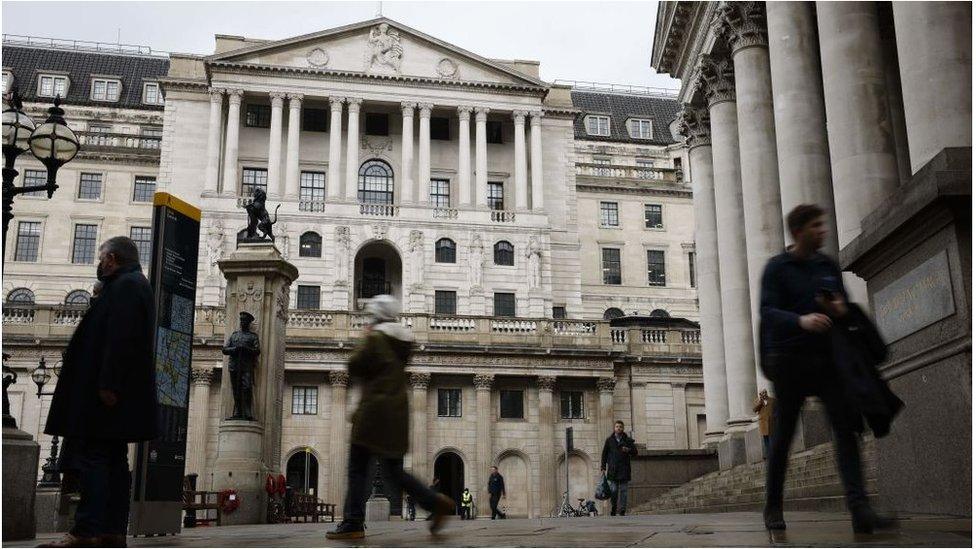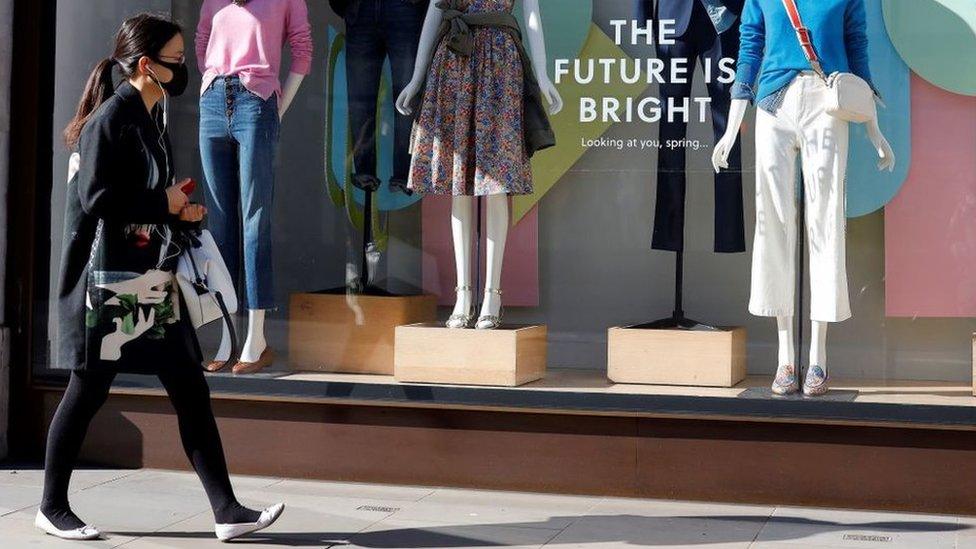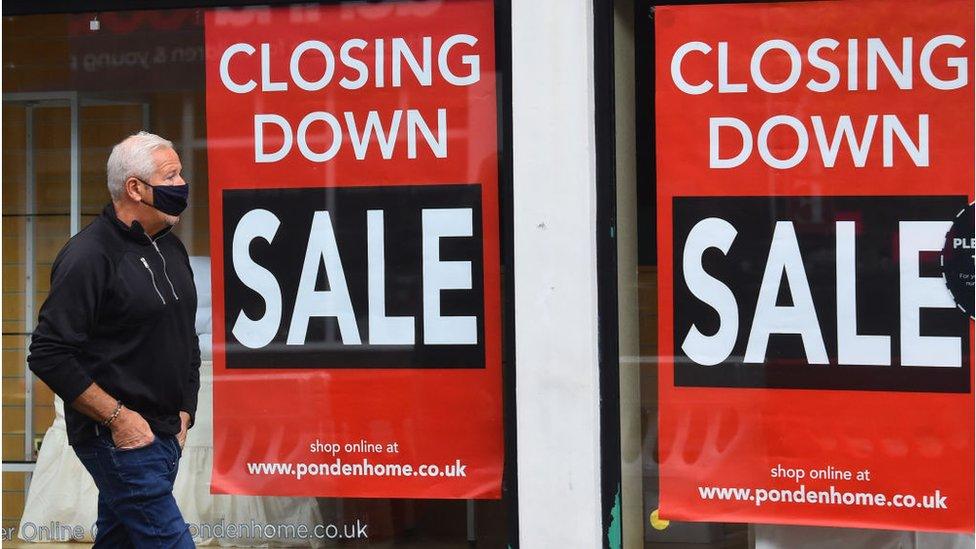Future of economy 'unusually uncertain', warns Bank of England
- Published
- comments

The future of the UK's economy is "unusually uncertain", the Bank of England has said, as it held interest rates at record lows.
It said new coronavirus vaccines boded well for long-term growth, but that a recent jump in cases would drag on the recovery.
Uncertainty over the future UK-EU trading relationship also clouded the outlook, it added.
The central bank held rates 0.1% and left its stimulus programme unchanged.
"The outlook for the economy remains unusually uncertain," the Bank said.
"It depends on the evolution of the pandemic and measures taken to protect public health, as well as the nature of, and transition to, the new trading arrangements between the European Union and the United Kingdom."
The Office for Budgetary Responsibility, the government's independent forecaster, predicts the UK economy will shrink by 11.3% this year - the biggest decline in 300 years. It expects unemployment to peak at 9.7%.
The Bank said the successful trialling of some Covid vaccines and plans to roll them out next year were likely to "reduce the downside risks to the economic outlook".
However, it said recent global activity had been affected by the increase in Covid cases and re-imposition of tougher than expected restrictions.
"The successful rollout of vaccines should support the gradual removal of restrictions and rebound in activity," it said, "although it is less clear how this prospect will affect the immediate economic behaviour of households and businesses."
'No deal risk'
At 0.3% in November, inflation remains a long way below the central bank's 2% target.
However, it said it was ready to accept inflation above 2% if a no-deal Brexit caused sterling to fall sharply, pushing up prices of imports.
The Bank also said it planned to keep the pace of its purchases of British government bonds broadly unchanged in early 2021 as it tries to shore up the economy.
But it said it was ready to increase them again if the outlook soured.
Samuel Tombs at Pantheon Macroeconomics said this was the "clearest indication yet that it would ease monetary policy further, in the event of no-deal".
Related topics
- Published15 December 2020

- Published16 December 2020

- Published10 December 2020
